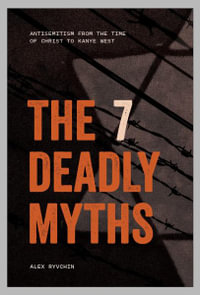In the Zohar, the jewel in the crown of Jewish mystical literature, the verse "A river flows from Eden to water the garden" (Genesis 2:10) symbolizes the river of divine plenty that unceasingly flows from the depths of divinity into the garden of reality.
Hellner-Eshed's book investigates the flow of this river in the world of the Zoharic heroes, Rabbi Shimon bar Yohai and his disciples, as they embark upon their wondrous spiritual adventures. By focusing on the Zohar's language of mystical experience and its unique features, the author is able to provide remarkable scholarly insight into the mystical dimensions of the Zohar, namely the human quest for an enhanced experience of the living presence of the divine and the Zohar's great call to awaken human consciousness.
Industry Reviews
"A River Flows From Eden is replete with insights and delights. It is without a doubt one of the most engaging books on Jewish mysticism in general, and the Zohar in particular. Melila Hellner-Eshed is an accomplished scholar of kabbalistic literature and an excellent guide into the intricacies of one of its most challenging works. A River Flows From Eden is truly rewarding for the novice and expert alike." - Mark Verman, Shofar "[Hellner-Eshed] has written a book sure to become a basic contribution to the study of Kabbalah and the Zohar. Interested faculty should read it and assign it to their student ... Highly recommended." - S. T. Katz, Choice "Dr. Hellner-Eshed's book is a truly groundbreaking study of the mystical dimension of the Zohar, the masterpiece of Kabbalah. The scholarship reflected in this book is superb... I rate it as one of the most significant academic studies of the Zohar in the past decade." - Daniel Matt, editor and translator of The Zohar, Pritzker Edition "A fascinating and richly textured work that combines linguistic and literary acumen with a historian of religion's interest in the phenomenology of mysticism and a poet's sensitivity to language. Simply put, this is one of the most exciting works of scholarship I have encountered in recent years... This is the rare book that should matter equally to specialists in the field and to serious lay readers and students." - Elliot K. Ginsburg, University of Michigan
























